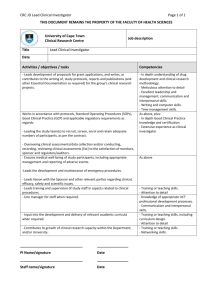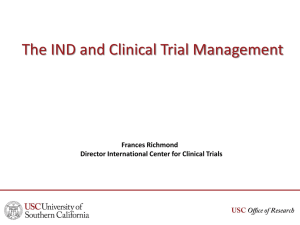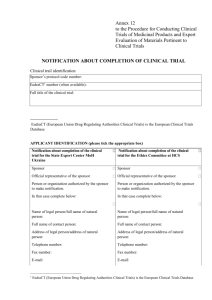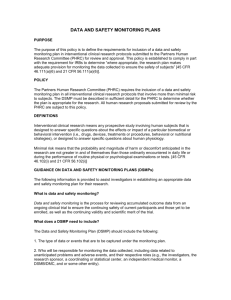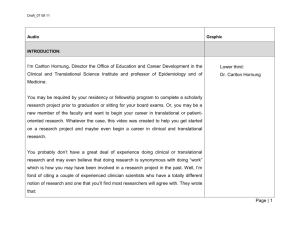Clinical Trials Management Office Definitions – Industry
advertisement
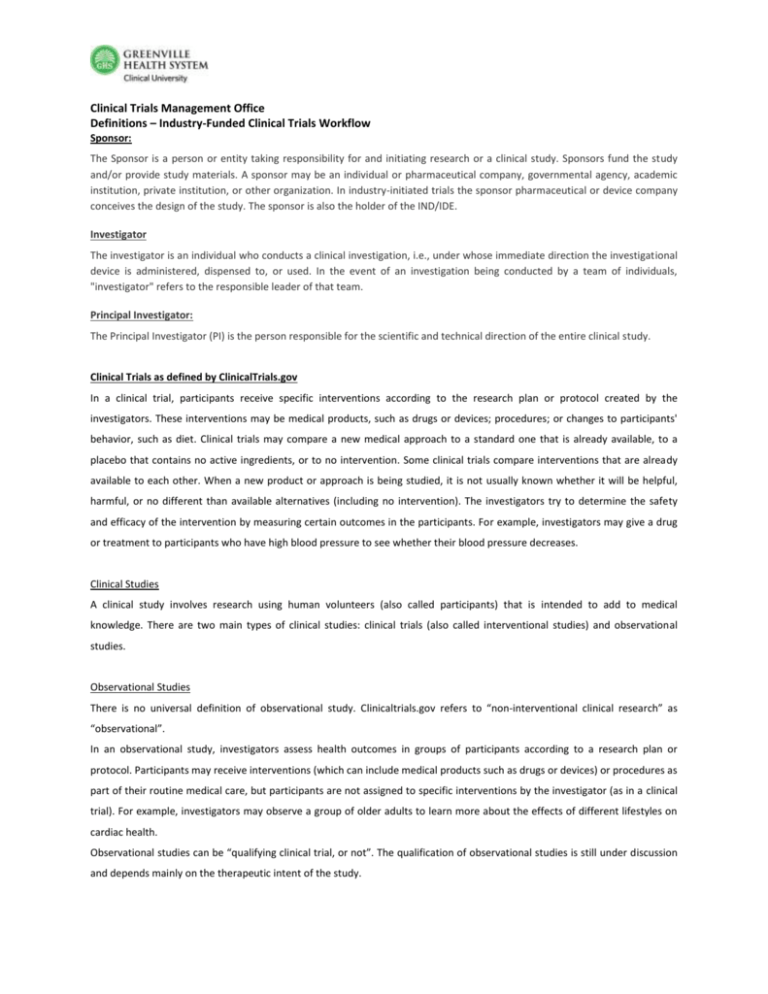
Clinical Trials Management Office Definitions – Industry-Funded Clinical Trials Workflow Sponsor: The Sponsor is a person or entity taking responsibility for and initiating research or a clinical study. Sponsors fund the study and/or provide study materials. A sponsor may be an individual or pharmaceutical company, governmental agency, academic institution, private institution, or other organization. In industry-initiated trials the sponsor pharmaceutical or device company conceives the design of the study. The sponsor is also the holder of the IND/IDE. Investigator The investigator is an individual who conducts a clinical investigation, i.e., under whose immediate direction the investigational device is administered, dispensed to, or used. In the event of an investigation being conducted by a team of individuals, "investigator" refers to the responsible leader of that team. Principal Investigator: The Principal Investigator (PI) is the person responsible for the scientific and technical direction of the entire clinical study. Clinical Trials as defined by ClinicalTrials.gov In a clinical trial, participants receive specific interventions according to the research plan or protocol created by the investigators. These interventions may be medical products, such as drugs or devices; procedures; or changes to participants' behavior, such as diet. Clinical trials may compare a new medical approach to a standard one that is already available, to a placebo that contains no active ingredients, or to no intervention. Some clinical trials compare interventions that are already available to each other. When a new product or approach is being studied, it is not usually known whether it will be helpful, harmful, or no different than available alternatives (including no intervention). The investigators try to determine the safety and efficacy of the intervention by measuring certain outcomes in the participants. For example, investigators may give a drug or treatment to participants who have high blood pressure to see whether their blood pressure decreases. Clinical Studies A clinical study involves research using human volunteers (also called participants) that is intended to add to medical knowledge. There are two main types of clinical studies: clinical trials (also called interventional studies) and observational studies. Observational Studies There is no universal definition of observational study. Clinicaltrials.gov refers to “non-interventional clinical research” as “observational”. In an observational study, investigators assess health outcomes in groups of participants according to a research plan or protocol. Participants may receive interventions (which can include medical products such as drugs or devices) or procedures as part of their routine medical care, but participants are not assigned to specific interventions by the investigator (as in a clinical trial). For example, investigators may observe a group of older adults to learn more about the effects of different lifestyles on cardiac health. Observational studies can be “qualifying clinical trial, or not”. The qualification of observational studies is still under discussion and depends mainly on the therapeutic intent of the study. The CTMO requires the registration of the observational studies, qualifying or not. A Prospective Reimbursement Form Analysis is also required.
